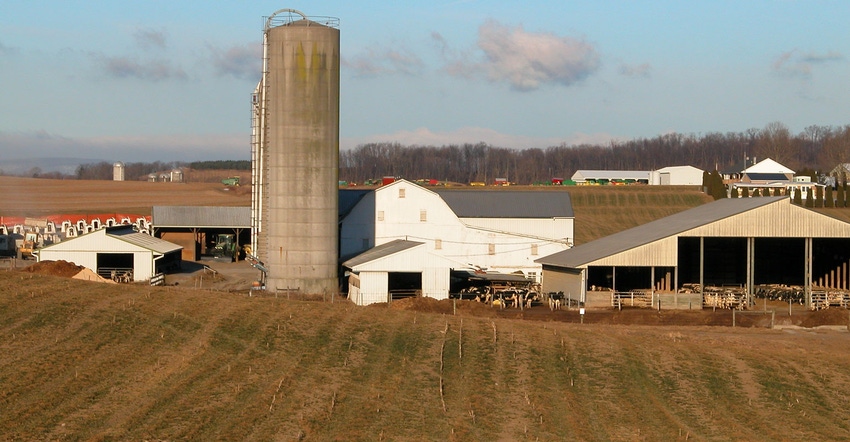
How much will individual dairy farmers get from the COVID-19 ag stimulus? That’s still unknown. But experts caution against thinking it will give the industry the huge boost everybody wants.
The USDA’s Coronavirus Food Assistance Program (CFAP) will provide $9.6 billion for the livestock industry, including $5.1 billion for cattle, $2.9 billion for dairy and $1.6 billion for hogs.
Related: Complete coronavirus coverage
It also provides $3.9 billion for row crop producers, $2.1 billion for specialty crop producers and $500 million for other crops.
It’s expected that producers will get a single payment based on losses that occurred between Jan. 1 and April 15. USDA has stated that producers will be compensated for 85% of price loss during that period, while the second part will be for losses from April 15 through the next two quarters — where 30% of expected losses will be covered.
The payment limit is $125,000 per commodity, with an overall limit of $250,000 per farm.
Andrew Novakovic, professor of ag economics at Cornell University, says that payments to individual farmers will likely depend on farmers documenting their production history. The program, he says, could be modeled after the Market Facilitation Program, where dairy farmers got a direct payment based on their established production history in the Dairy Margin Coverage program — the highest milk production of 2011, 2012 and 2013.
Alan Bjerga, spokesman for the National Milk Producers Federation, says it’s not yet clear how dairy payments will be calculated. Checks could start rolling out to farmers in late May or June.
The second part of CFAP is USDA’s purchase of $3 billion in fresh produce, dairy and meat. According to the American Farm Bureau Federation, this will include purchases of $100 million per month of fresh fruits and vegetables; $100 million per month of dairy products; and $100 million per month of meat products.
Novakovic says this will likely provide a bottom for the dairy market, which would allow dairy plants to remain active in the wake of reduced demand from schools and institutions.
But he warns against getting too excited.
“Creating a demand for farm milk, even if it is an artificial one, should strengthen milk prices. That may mean hardening the floor we are already on,” he says. “I think more likely it means breathing a little bit of life back into prices, although I wouldn’t raise that expectation very high. In any case, it would be a good thing.”
Another factor to consider is current supply management programs that some cooperatives have put into place to control supply.
Dairy Farmers of America recently sent a letter out to its Northeast producers stating that starting in May its members would only get full value for 85% of their March base production. Anything above 85% would only get the value the cooperative is able to get from the marketplace, which they are estimating at less than $7 per cwt.
In the letter, DFA, the region’s largest dairy cooperative, blamed market conditions for instituting the program, including a 15% drop in product demand due to COVID-19.
“I think we’re in for a pretty long and grueling haul that could last deep into 2021,” Novakovic says.
Dave Swartz, assistant director of animal systems programs at Penn State, says CFAP will help, but it won’t be enough to cover the losses Pennsylvania dairy farmers are incurring.
“The Class III futures prices for the April-December 2020 timeframe dropped $3.40 per cwt from mid-February to mid-April. Pennsylvania produces 843 million pounds of milk per month. If futures prices hold where they currently are, Pennsylvania dairy would lose roughly $260 million in the April-December 2020 time frame due to the negative swing in price in the past eight weeks,” Swartz says. “For Pennsylvania’s 5,700 dairy farms, this would be an average loss of $45,000. This does not count additional losses from discounted milk from supply management programs imposed this spring.
“One question that I don’t yet know is if the losses from supply management programs can be used to calculate a dairy operation’s loss from coronavirus. For example, DFA’s supply management program … will only pay market price for 85% of March 2020 production.
“The justification of the supply management program is the broken supply chains, and the program is supposed to continue until the supply chain situation is resolved. So, one could make the argument that since at least some of the supply chain issues are due to coronavirus, the losses incurred by dairy producers in these supply management programs should be able to count for reimbursement. It will be interesting to see how these aid payments to dairies are calculated.”
About the Author(s)
You May Also Like






